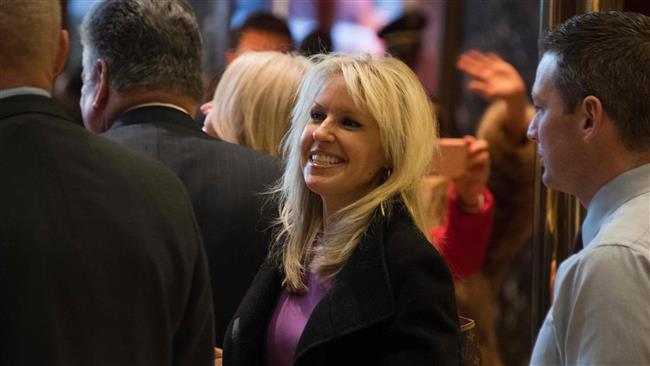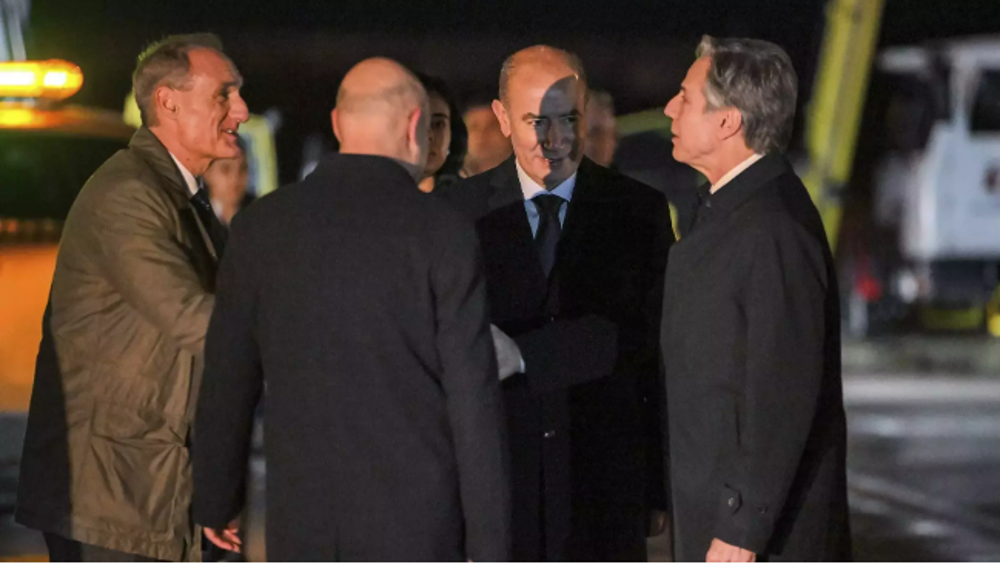Trump security adviser quits amid plagiarism claims
The security adviser of US President-elect Donald Trump has quit her job amid allegations that she plagiarized key passages in a best-selling book.
Monica Crowley, the conservative author and pundit chosen for a top communications post on the National Security Council, had been named on December 15, 2015.
On Monday, she quit without giving any specific reason and mentioning allegations that she used plagiarism in her book and doctoral thesis.
"After much reflection, I have decided to remain in New York to pursue other opportunities and will not be taking a position in the incoming administration," Crowley, a former Fox News commentator, told the conservative Washington Times, where she previously was an online opinion editor.
Trump's nominee for national security adviser, Michael Flynn, confirmed Crowley's withdrawal, adding, "We wish her all the best."
Crowley was supposed to help shape the Trump administration's messaging on diplomatic and security issues and to write speeches.
On January 7, CNN reported that several passages used in Crowley's book "What the (Bleep) Just Happened?" had been closely copied from other sources. Later, publisher HarperCollins withdrew the book.
The Trump transition team had, at first, said that she was the victim of "a political attack," but she never confirmed or denied the allegations.
According to Politico, some copied passages were also found in her doctoral thesis on US-Chinese relations, completed in 2000 while she was at Columbia University.
Crowley was not the only one who dropped out; Jason Miller, another appointee, withdrew his name as White House communications director In late December.
Although he said his reason was to spend more time with his family, he withdrew exactly after tweets from another Trump adviser suggested that Miller had had an extramarital affair.
Most people nominated by Trump for different posts have caused controversy and were being criticized as hardliners.
Trump’s cabinet appointments signaled his intention to deliver on his hard-line campaign promises and deepened concerns among Muslim Americans about an anti-Islamic White House.
Some current and former US government officials are also concerned that Trump’s appointments could reinforce perceptions among Muslims that Washington is at war against Islam.
VIDEO | Yemeni forces repel US-British attack, down F-18 Jet
Iran’s capabilities vast; enemy’s ‘maximum pressure’ policies all failed miserably: Senior official
Iran’s economy grew 2.7% y/y in Sep quarter: CBI
VIDEO | Freelancers in Gaza strive to stay online amid genocide
Mikati demands Israel's withdrawal from south Lebanon
Yemeni army strikes Israeli military sites with drones
‘Clock ticking’: UNRWA slams unjustifiable killing of children in Gaza
BP to be sued in Britain for supplying oil to Israel










 This makes it easy to access the Press TV website
This makes it easy to access the Press TV website